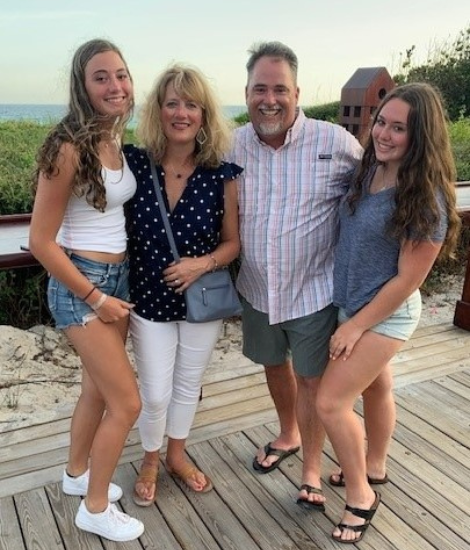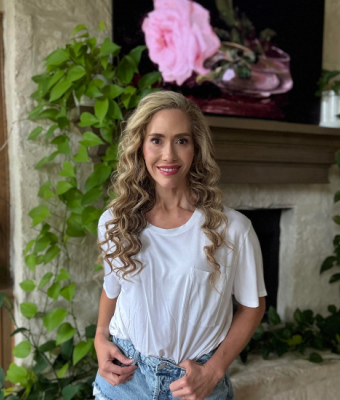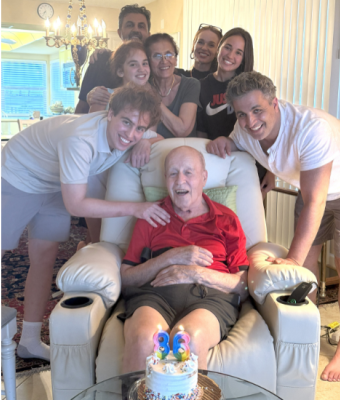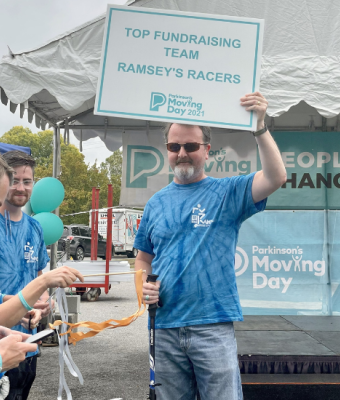My PD Story

Susan Brister
“There is a large population of women out there, as well as people with Young-Onset Parkinson’s disease (YOPD), who are still of working age, that need our help,” said Susan Brister, Parkinson’s advocate from Lilburn, GA. “The Parkinson’s Foundation has found a niche in reaching these communities to offer the resources they need.”
Susan lives with YOPD and hopes that her appearance in “Better Lives. Together .” the Parkinson’s Foundation public service announcement (PSA) will spread awareness about Parkinson’s disease (PD), especially among underrepresented groups.
In the 16 years since Susan was diagnosed, she has learned to adapt to the challenges of Parkinson’s with grace and a healthy dose of humor.
“Parkinson’s taught me to take life a little less seriously, and that living with a disease with no cure doesn't have to be as bad as it sounds,” said Susan. “Parkinson's will change your trajectory in life but doesn't have to define who you are.”
When Susan was 34, working in a stressful corporate job with a newborn and a two-year-old at home, she noticed that something was not right with her fine motor skills.
“I remember ordering wide grip pens from my office’s supply company because my writing has gotten so bad and so small,” said Susan. “I had my second child in 2004, and when it came time to write thank you cards for baby shower gifts, I couldn't do it. My writing had become illegible. I had to hire a couple of high school girls to write the cards for me.”
Shortly after that, Susan noted that she was struggling to perform simple tasks like scrambling eggs or brushing her teeth. She decided it was time to seek out a neurologist.
“It was my seventh wedding anniversary in 2005 when the doctor told me ‘I think you've got Parkinson's disease,’” said Susan. “My mind immediately went to a vison of an elderly person shaking with tremors and I didn't want to think about it, but the doctor said, ‘I encourage you to get another opinion.’”
Shortly thereafter, Susan’s diagnosis was confirmed by a second doctor, and she began to consider what lifestyle changes she would need to make.
“My manager gave me a role that was more flexible and less demanding in terms of life-work balance, but at the same time, less responsibility also meant less pay and I was used to having the opposite. I was always proud of being a strong female leader in my industry, so it was quite difficult to accept.”
By 2009, managing work with PD and two young daughters had become untenable. “The stress exacerbated all my symptoms,” said Susan. Turning in her business cards was especially hard: “I felt like I lost my identity,” said Susan.
Instead of being discouraged, Susan, now a full time stay at home mom, had new business cards printed. “The cards had the job title ‘Best Mom in the World,’” said Susan. “It was my tagline because it’s what my daughters always call me.”
Today, Susan’s independent daughters are quick to help with her Parkinson’s-related challenges. “My youngest one has nice penmanship, so she helps with writing letters or paperwork at the doctor’s office. My older daughter has an intuitive sense of when I'm getting frustrated with my ability to explain something to someone like a doctor or mechanic. She’ll just say ‘Mom, hold on, I'll do this for you,’ and she'll step up and explain what I’ve been struggling to articulate. She takes the ball and runs with it. I'm really proud of both of my daughters for that support.”
Susan stays active to keep her PD symptoms in check through yoga alongside a trainer and taking evening walks with her husband. “It's our bonding time,” she said. Susan also enjoys spending time with her family watching her younger daughter play softball and her older daughter play volleyball.
Susan also does her part to support young women with PD, offering a listening ear to those considering deep brain stimulation (DBS) surgery. “My social worker contact will call me and say, ‘hey Susan someone is contemplating getting surgery, are you willing to talk to them?’ My first response is always ‘yes, don't even ask, just give my number,” she said. “I didn't have a real person to talk to when I was preparing for surgery in 2017, and if I did, it would have been an elderly man, which wouldn’t have been helpful for me.”
Susan’s advice to people who are newly diagnosed with PD is straightforward. “It gets easier to talk about it and deal with the longer you have. In the beginning it is very emotional because you think the worst, but get medicated, get a good doctor and take your medications on time and you will improve your quality of life.”
Watch our “Better Lives. Together.” public service announcement
Related Materials
More Stories
from the Parkinson's community


